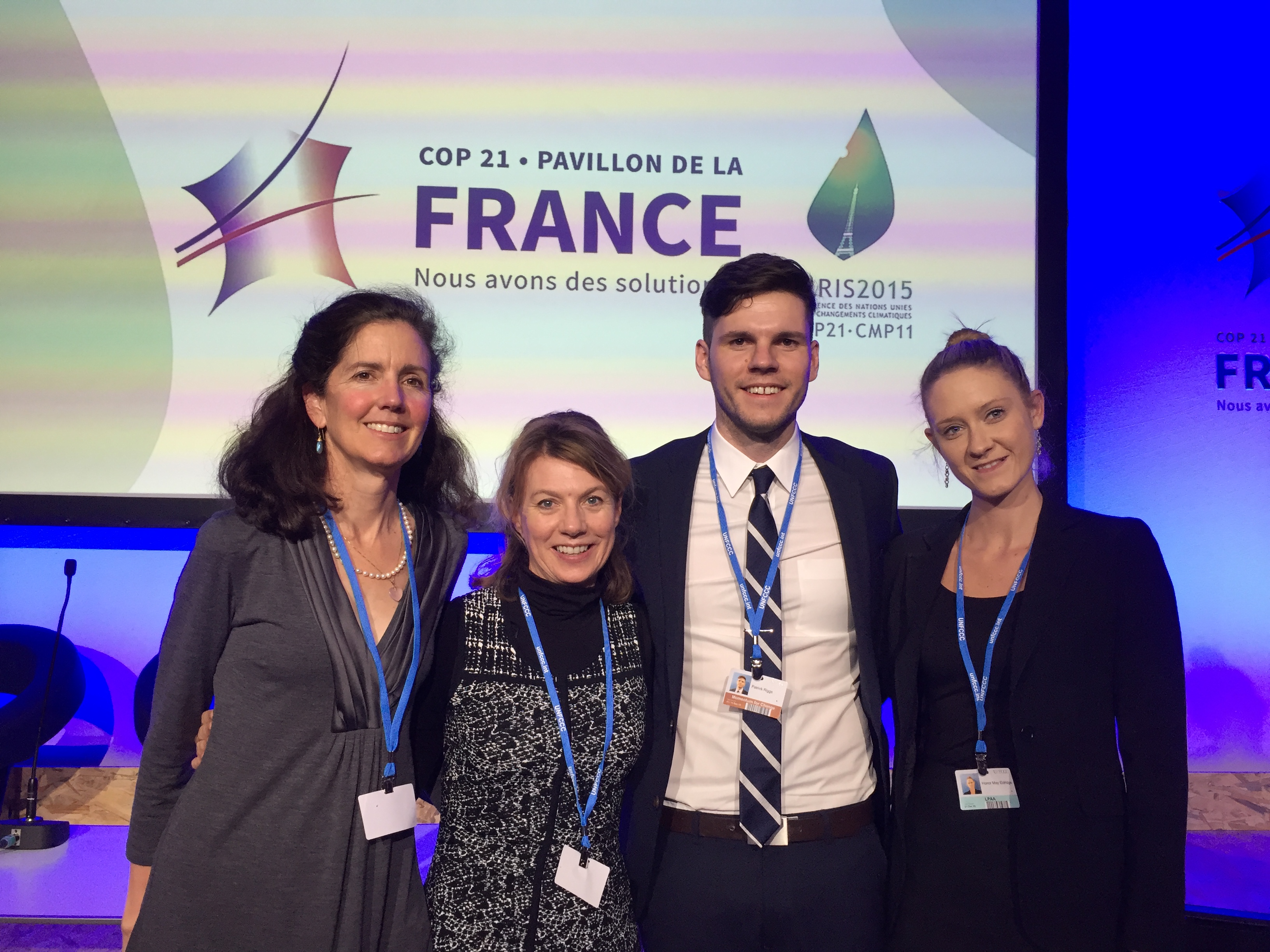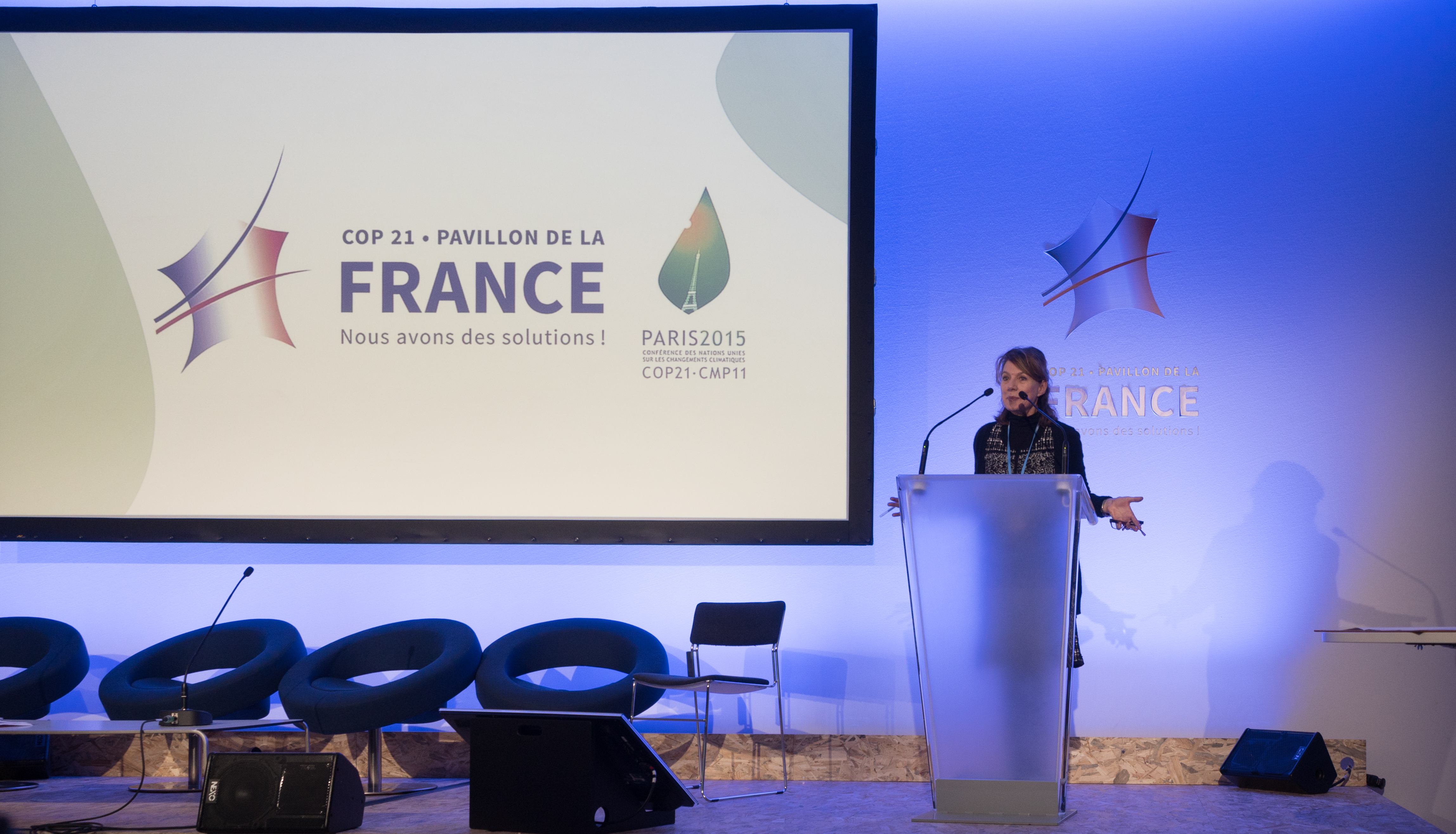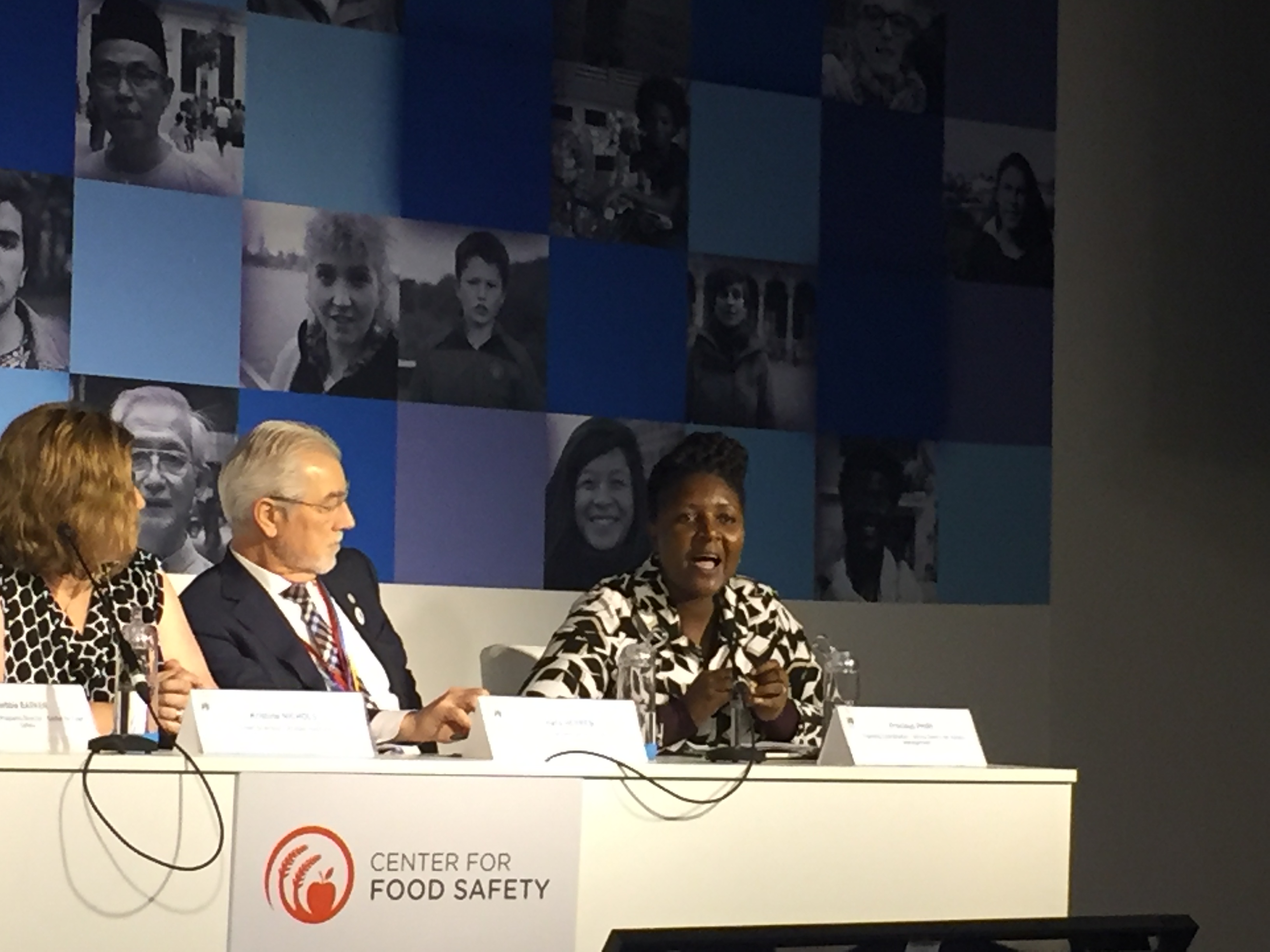Center for Food Safety’s food and climate team went to the UN’s 21st Conference of Parties - COP21 with shovel-ready solutions and one big goal: to spread awareness of the vast, currently under-recognized, potential that restoring soil carbon holds for combatting the climate crisis.
We arrived in Paris and hit the ground running; the nascent soil carbon movement’s biggest ally – the French Ministry of Agriculture – had invited us to be part of the official launch of their game-changing “4 per 1000” initiative in the UN’s official “Blue” zone. The goal of this initiative is to combat climate change and ensure food security by increasing the organic carbon content level of agricultural soils by 0.4% each year.

The event featured the first public screening of our new four minute film “Soil Solutions to Climate Problems,” narrated by Michael Pollan. Created to coincide with the historic climate conference, “Soil Solutions” has a clear, positive message: too much carbon in the atmosphere is a problem, but we now know how to put carbon back in the soil where it is a solution to multiple problems.
Prior to the screening, CFS International Director Debbie Barker was invited to speak to a standing-room only crowd of ministers. She praised the French Ministry for proposing the important “4 per 1000” concept to the global community, but encouraged them to remain vigilant so that methods respecting agro-ecological integrity are at the center of the implementation framework. Signed by over 25 countries that day including France, New Zealand, Japan, Mexico and Germany, the initiative was also signed by Andre Leu, president of the International Federation of Organic Agriculture Movements (IFOAM). Mr. Leu and the thousands of organic farmers he represents around the world will no doubt help safeguard the initiative’s integrity.

COP21 happened to coincide with World Soil Day, December 5th. An essay in that day’s Washington Post, co-authored by Debbie Barker and Michael Pollan, highlighted the global opportunity to draw carbon out of the atmosphere using regenerative farming. The well-timed piece, highlighting innovative practices that are successfully restoring carbon stocks at Cedar Circle Farm in Vermont, created great excitement in the soil carbon movement. Agriculture has historically been ignored as both a source of problematic greenhouse gas emissions and as potential repository for those emissions, so Paris was a chance to finally capture the attention of the mainstream climate movement.
We brought leading soil scientist Dr. Kris Nichols, chief scientist at the Rodale Institute, with us to events around the city to show that rebuilding soil carbon has universal application and multiple benefits. At her presentations at both the Global Landscapes Forum (GLF), the biggest single “nature” focused event at COP21, and the lively Climate Generations pavilion, Nichols gathered volunteers from the audience to demonstrate the superior water-holding capacity of carbon-rich soils.
Our panel of international expert speakers also included Dr. Hans Herren of the Millennium Institute and Precious Phiri, founder of Earth Wisdom and coordinator of the Africa Center for Holistic Management. Herren underscored the need to transition to agro-ecological methods that use nature and science together, and Phiri showed rapt audiences land in Zimbabwe where water and wildlife had returned and where people were able to make a living off of the land because the soil had enough carbon to carry out its many functions. Phiri ended her presentations with a montage of photos she called “the new face of climate heroes” – small-scale, regenerative farmers.

After decades of systematic abuse and institutional neglect, it is thrilling that one of our most essential natural resources finally got its due in Paris: We succeeded in realizing our goal, together with our colleagues in the budding soil carbon movement. But audiences in Paris weren’t the only ones inspired to learn about this zero-risk solution; media soon picked up the soil solutions story and spread the hopeful news worldwide. Perhaps this tweet at the end of the conference from Bill McKibben, the de facto head the climate movement, best captures soil’s breakthrough to the mainstream: “Soil is a rising star at climate talks.”









